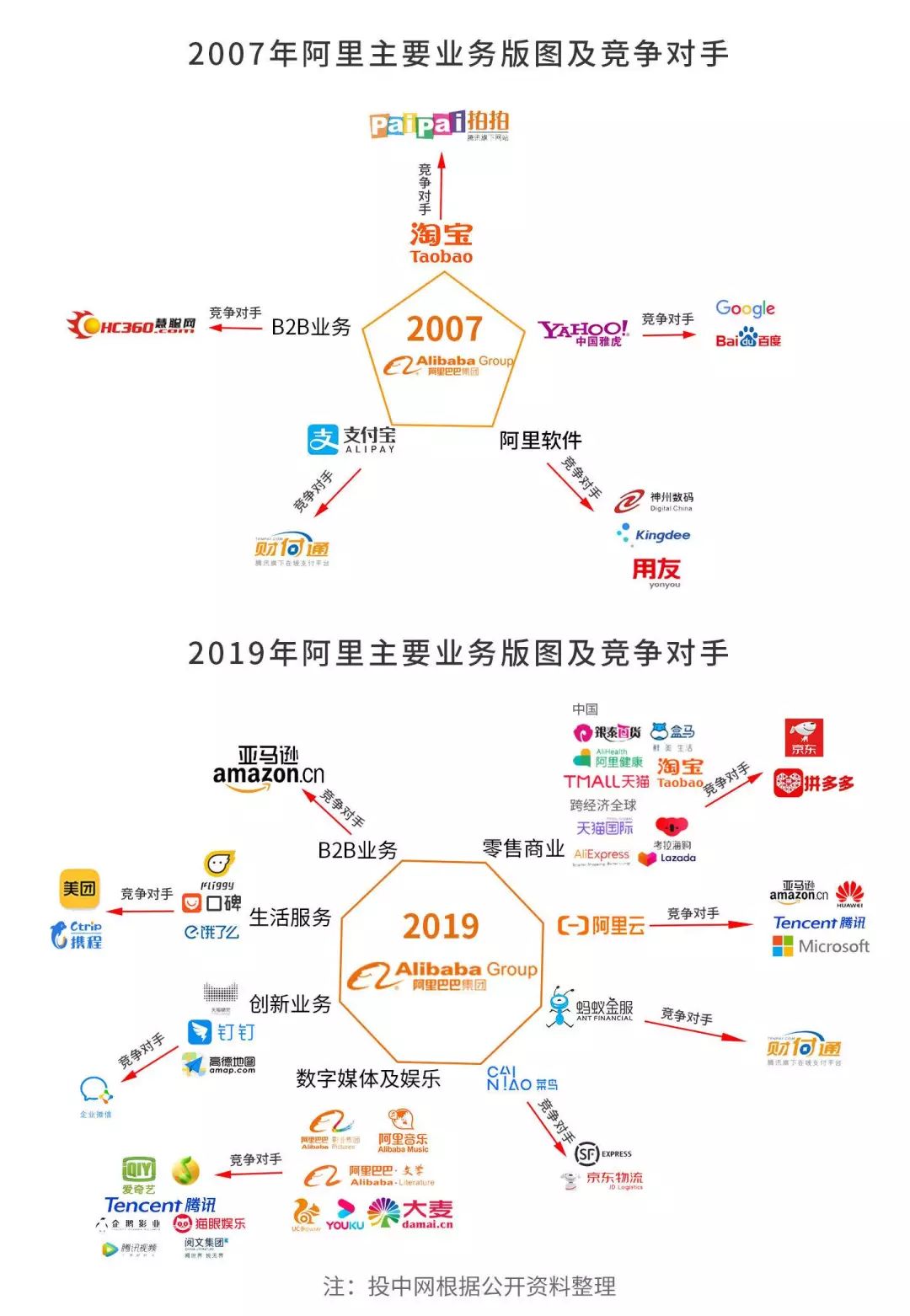China Investment Network has sorted out Alibaba’s 12-year transformation from four aspects: business layout, performance data, investment mergers and acquisitions, and executive changes.
Editor’s note: This article comes from WeChat public account “Dongzhongwang” (ID: China- Venture) , author: Chen Ching Cheung, the title has changed.
On November 26, Alibaba was listed on the Hong Kong Stock Exchange. The opening price was reported at HK $ 187, an increase of 6.25% from the offer price of HK $ 176, with a total market value of approximately HK $ 4 trillion, surpassing Tencent Holdings’ HK $ 3.26 trillion.
This is the third listing of Alibaba and the second listing on Hong Kong stocks. In November 2007, Alibaba’s B2B business was listed on the Hong Kong stock market, and then delisted in June 2012. In September 2014, the Alibaba Group was listed on the NYSE as a whole.
From 2007 to 2019, Alibaba re-landed in Hong Kong stock market. What new changes has it made? China Investment Network has sorted out Alibaba’s 12-year transformation from four aspects: business layout, performance data, investment mergers and acquisitions, and executive changes.
Business is expanding and the list of competitors is growing

Alibaba (only Alibaba’s B2B business was listed at the time) when it went public in 2007 has the embryonic form of the entire Alibaba Group.
At the end of the year before the listing, Alibaba used three months to separate its five business units into five subsidiaries, namely Alibaba, Taobao, Alibaba Software, Alipay, and China engaged in B2B business Yahoo, dubbed the “Five Fingers of Dharma.”
At that time, the B2B business was the elder brother, the cash cow of the entire Alibaba Group, responsible for “blood transfusion” for Taobao, Ali Software, Alipay and China’s Yahoo business units.
Taobao just won the C2C battlefield-its rival eBay announced its withdrawal from the Chinese market at the end of 2006. Internet observer Keso commented, “This is a company that aims at market size and competes with a company that aims at revenue growth. EBay (Note: eBay acquired eBay in 2003) already has stock The market, relative to the huge incremental market that entered the outbreak period, is almost meaningless and better than nothing. “
